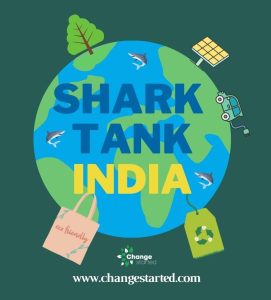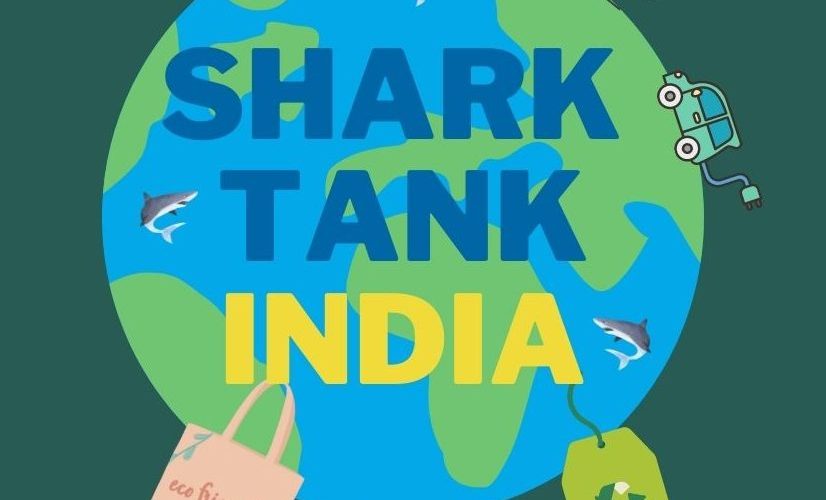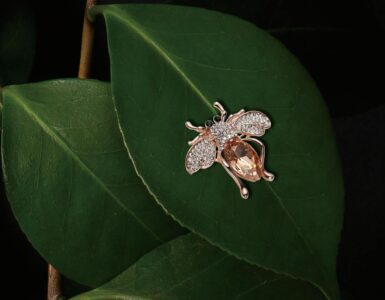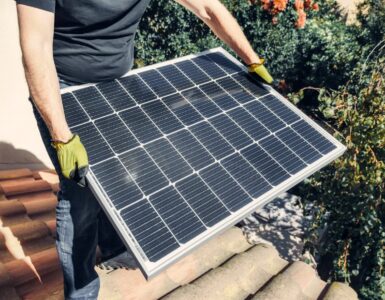As the curtains come down on Season 1 of Shark Tank India with a range of inspiring founders making exciting pitches for their startups from different parts of India.
The Shark Tank India was launched on Sony Entertainment media properties in December 2021 and ran over 30 plus episodes. The business reality show is the Indian version of America’s Shark Tank, which made its first appearance in 2009, on ABC.
The format consists of entrepreneurs pitching their businesses to a panel of investors (called Sharks) who decide whether to invest in their company.
There were a total of seven Sharks on the debut edition of Shark Tank India – Namita Thapar of Emcure Pharma, Anupam Mittal of Shaadi.com, Ghazal Alagh of Mamaearth, Peyush Bansal of Lenskart, Aman Gupta of Boat, Ashneer Grover of BharatPe and Vineeta Singh of Sugar Cosmetics.
As per the data available, 62,000 applications were made for season 1 of Shark Tank India. 198 startups were selected to make the pitch in front of sharks, and finally, 67 businesses got Rs 41.68 crore worth of deals.
Let us look at startups that appeared on the show that is working towards a sustainable future. These environment-friendly startups on Shark Tank India not only have strong business potential but also will help our planet.
Booz
Booz is an app-based electric scooter company started by automotive engineer Rutvij Dasadia in 2017. Rutvij got this idea while pursuing his engineering in Ahmedabad, where he wanted a temporary college commute without owning a vehicle.
As per the claims in the show, Booz is South Asia’s first app-based electric scooter operator. The Ahemdabad-based start-up provides electric scooter rentals in locations like business parks, commercial parks, residential regions, industrial areas, educational campuses, tourist attractions, public spaces, hotels, clubs, and resorts. The company procures its utility scooters from a manufacturer and offers a subscription-based model for services like charging stations, maintenance, installation, etc. In public places, Booz offers pay per ride rental model. In the first year of its operations, it made a revenue of Rs. 4 lakhs.
The urban mobility start-up received Rs 40 lakhs in funding for 50% shares by Vineeta Singh & Ashneer Grover. The original ask by Rutvij was for a 15% stake for the same amount.
Founder: Rutvij Dasadi
Motion Breeze
Motion Breeze is a smart electric motorcycle company started by brothers Anantraj Tomar and Shivrajsinh Tomar.
As per their pitch at Shark Tank India, Motion Breeze is the world’s first adaptive, smart electric motorcycle. Their patented adaptive technology can adjust the ergonomics of bike riders as per their requirement. The motorcycle has a battery range of 250 km on a single charge and offers a top speed of 180 kmph.
At the time of appearing on the show, the electric motorcycle was in the prototype stage. The company intends to establish its manufacturing unit in Vadodara, Gujarat, and launch its first bike in 2022 for the price range of Rs. 1.5 lakhs to Rs. 3.5 lakhs.
The Gujarat-based company is in a competitive electric motorcycle segment, which has many Indian startups vying for consumers’ attention. The company got a deal for a 6% stake for the investment of Rs. 30 Lakhs from investor Ashneer Grover. It will be interesting to see, where this young company goes from here.
Founders: Anantraj Tomar & Shivrajsinh Tomar
Ariro Wooden Toys
Ariro is a Chennai-based startup started by husband and wife duo Vasant and Nisha in June 2020. The company specializes in exquisite environment-friendly wooden toys for 0-3-year-old children. The wooden toys are hand-made with Neem wood, which is antibacterial and antifungal.
Ariro targets the Montessori kids as their customer base and offers an array of eco-friendly wooden toys, like neem wood teether, pikler triangle, jungle gym, and balance board, among others. The company makes 80% of its sales from its own website and 20% on other platforms like Amazon, Nestree, and Hamleys. At the time of the show, the company generates monthly revenue between Rs 25 lakhs to Rs. 30 lakhs.
The Indian Toys market is worth more than US$ 1.5 billion which majority of players offer toys that are made of plastic. Considering the harmful impact of plastic toys on children’s health, wooden toys are safer and environmentally friendly.
The company got a deal for a 10% stake for the investment of Rs. 50 Lakhs from investors Peyush Bansal and Aman Gupta. The original ask was for Rs. 50 lakhs for a 2.5% stake.
Founders: Vasant Tamilselvan and Nisha Ramaswamy
You can read more about a study that found plastic in toys and what options you have for your kids, here.
Caragreen
Caragreen provides eco-friendly cardboard boxes which can be used for food deliveries and also for consuming food. The company was started by the daughter-in-law and mother-in-law duo of Surabhi Shah and Chetan Shah in Indore, the city which won India’s cleanest city award multiple times.
The patent-pending unique feature of the cardboard box is its design. It gives the consumer the utility to pull out plates and spoons from the perforated cardboard box and use it for consuming food. With single-use plastic being banned in many parts of India, Caragreen cardboard boxes provide an alternative for consumers and businesses. As per the founders on the show, their business clients include Haldiram’s and Balaji snacks.
The idea for starting this business occurred to Surabhi while working in the family printing business, where a lot of cardboard was left unused. Surabhi utilized her mother-in-law’s experience of baking and expertise in design to start this environment-friendly venture and even received a grant from IIM Ahemdabad.
The company got a deal for a 20% stake for the investment of Rs. 50 Lakhs from investors Peyush Bansal and Anupam Mittal. The original ask was for Rs. 50 lakhs for a 10% stake.
Founders: Surabhi Shah and Chetan Shah
Wakao Foods
Founded by Sairaj Dhond, Goa-based Wakao Foods makes plant-based meat products from Jackfruit. A lawyer by education, Sairaj found his love for Jackfruit and started Wakao in 2020. Jackfruit is widely considered a superfood that can be consumed in a variety of ways including as a non-vegetarian replacement from the past many years in India.
Sairaj Dhond danced his way into the Shark Tank India platform, after making his pitch, asked for Rs. 7.5 million for 5% equity in his company, Wakao. Interestingly, three female Sharks, Namita, Ghazal, and Vineeta offered the requested amount for a 30% equity, which was negotiated by Sairaj to finally settle at 21%, valuing the company at Rs. 30 million.
India, the world’s biggest producer of jackfruit is using it for making vegetarian recipes, tangy pickles, and as an add-on in rice dishes for thousands of years.
Lately, Jackfruit has caught the world’s attention as a vegan substitute for animal meat. Apart from Wakao Foods, Singapore-based Karana Foods’ flagship product, a pulled pork substitute is made entirely from jackfruit.
Founder: Sairaj Dhond
Revamp Moto
Revamp is a Nashik-based electric vehciles company started by Jayesh Tope, Pushkaraj Salunke, and Pritesh Mahajan.
As per the claims on the show, the electric bike is India’s first modular utility platform, which enables the electric vehicle with utility attachments. The company came up with 2 models of Electric vehicles, Revamp Mitr and RM25.
Revamp Mitr has a battery range of 140 km on a single charge, offers a top speed of 65 kmph, and can carry a load of up to 200 kilograms. The back seat of the Revamp Mitr can be converted into a number of utility attachments, like:
- Folding Table for fruits and vegetable sellers.
- Delivery Basket for eCommerce delivery executives.
- Small Mobile Fridge for carrying dairy products, vaccines, etc –
The co-founders came into the show with a huge order already in their pocket which was for 50,000 units at an order value of Rs. 250 Crore, which gave them a huge advantage in terms of valuation.
The pitch induced some heated arguments between sharks, finally, Revamp Moto closed the deal for a 1.5% stake for the investment of Rs. 1 crore from investors Aman Gupta and Anupam Mittal. The original ask was for Rs. 1 crore for a 1% stake.
Founders: Jayesh Tope, Pushkaraj Salunke, and Pritesh Mahajan
Dandera Technologies / Otua
Dandera Technology is an electric automobile company started by two childhood friends Kanav Manchanda and Kshitij Bajaj. The company brings the automotive engineering skills of Kshitij and the business expertise of Kanav and their first product is the electric three-wheeler Otua.
As per the founders on the show, special focus has been given to the ergonomics of the three-wheelers. It comes with anti-tilt technology and is powered with a range of 165 km and a 1-ton carrying capacity which is double the market standards. Otua also offers a modular setting that can enable it to be used as a passenger vehicle, for logistics, or as a food truck. At the time of the show, Otua is still in the prototype stage.
The Pune-based company closed the deal for a 1 % stake for the investment of Rs. 1 lakh and Rs 99 lakhs as debt from investor Ashneer Grover. The original ask was for Rs. 1 crore for a 1% stake.
Founders: Kanav Manchanda and Kshitij Bajaj
Bamboo India
Bamboo India started by husband-wife duo Yogesh Shinde and Ashwani Shinde makes products using Bamboo grass.
As per the pitch made by Yogesh, Plastic toothbrushes which were invented in 1938 but continue to stay on the planet and pollute our environment. The Pune-based company makes bamboo toothbrushes and has sales both domestically and internationally through online and offline channels. The company generated a revenue of Rs. 2.8 crores in FY 2020-21.
Yogesh after working in the technology sector and working for global clients decided to start Bamboo India in 2016. In addition to toothbrushes, Bamboo India makes other products using bamboo like jewelry, eye frames, tongue cleaners, combs, gift items, etc.
The pitch generated interest among four sharks, the company closed the deal for a 3.5% stake for an investment of Rs. 50 Lakhs and Rs. 30 lakhs as debt from investors Ashneer Grover and Anupam Mittal. The original ask was for Rs. 80 lakhs for a 4% stake.
Founder: Yogesh Shinde and Ashwani Shinde
India Hemp and Co
Indian Hemp and Co is a company started by two sisters Shalini Bhattacharya and Jayanti Bhattacharya in 2019.
Hemp has been in use for the last many centuries to make everything from rope to clothing, to paper, but due to misconceptions, hemp is only thought of as a product to get intoxicated. Indian Hemp and Co makes food products made with hemp seeds. As per the founder, the consumption of hemp is highly nutritious, anti-inflammatory, and a rich source of proteins, and dietary fiber.
At the time of the show, the Bengaluru-based company is into 12 product categories like pet food, hemp seed trail mix, protein powder, and hemp seed oil among others. It generates 80% of its sales on its website and did a yearly revenue of Rs 20 lakhs in FY 2020-21. Their investment requirement was Rs 50 lakh for a 4% stake but they were unable to generate interest from sharks.
Founders: Jayanti Bhattacharya and Shalini Bhattacharya
Scrapshala
Scrapshala is a Varanasi-based enterprise started by the mother and daughter duo Madhu Shah and Shikha Shah in 2016.
The company makes sustainable lifestyle products, home decor, furniture, and personalized gifting items. Products are handcrafted by local artisans using unused items, plastic waste, electronics waste, and old newspapers, among others. The company sells its upcycled products all across India through the online marketplace, and its own website, and also has retail outlets in Varanasi.
The company requirement was Rs 50 lakh investment for a 10% stake but they were unable to raise money.
Founders: Madhu Shah and Shikha Shah.
Wrapping Up
Importance of climate startups and environment-friendly startups on Shark Tank India.

The name of the business reality show is Shark Tank and in the overall theme & aesthetics created in the show, the animated version of floating sharks is an important element.
Ironically, the real marine Sharks are fast disappearing from our oceans and sea at an alarming pace due to overfishing, bycatch, and marine pollution. According to the International Union for Conservation of Nature, two dozen shark species are threatened with extinction, and three shark species are now classified as critically endangered. While these amphibian sharks cannot be saved by any of these startups directly, the impact these companies can generate in spreading awareness about sustainability and environmental protection will be vital.
As the impact of climate change has increased drastically in the last few years, making sustainable consumption choices can create a huge difference. On one hand, environment-friendly startups on Shark Tank India will help in reducing the carbon footprint of their consumers, on the other hand, the media coverage will create curiosity among the masses.
Let us hope many more startups working in the environment sector appear in the next edition of the show.
A quick preview of the 8 environment-friendly startups that got funded at Shark Tank India on our Instagram handle.






Add comment